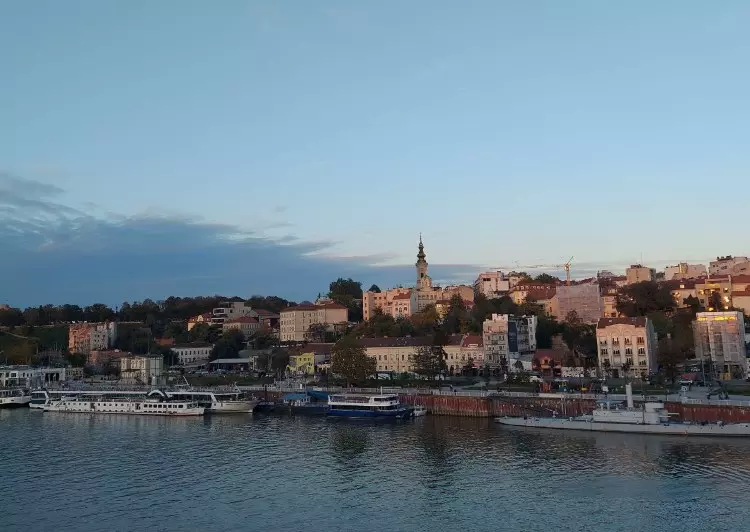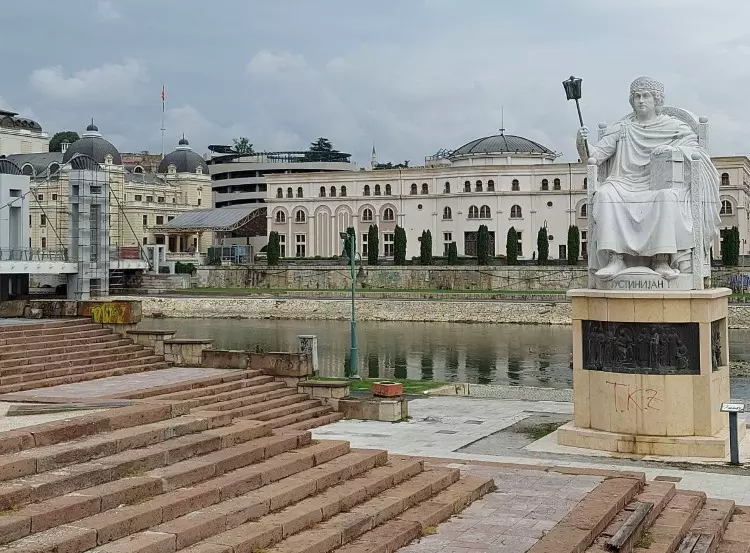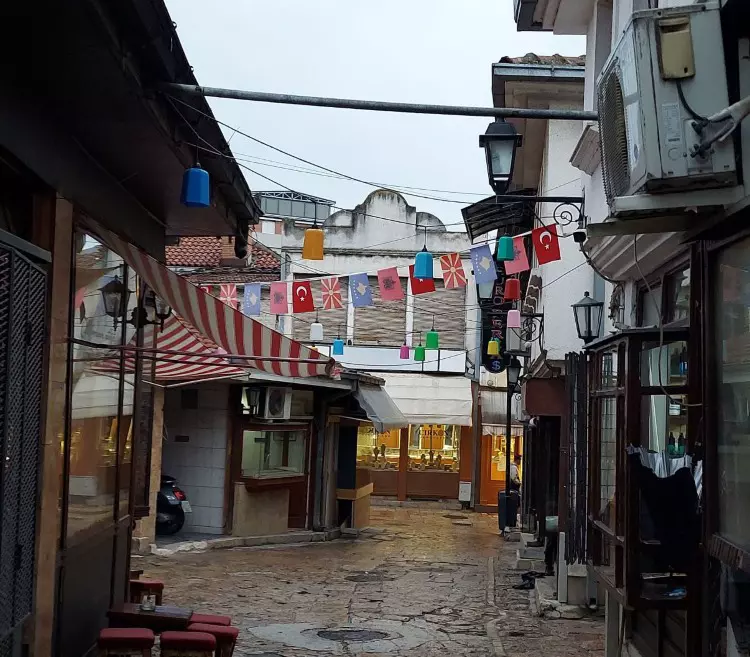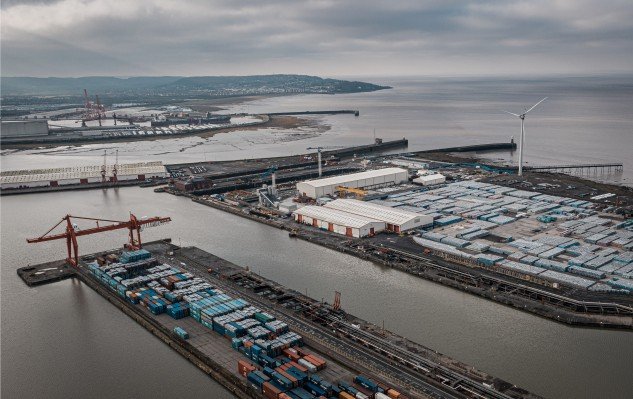In the Western Balkans, a region in Southeastern Europe, efforts are being made to modernize cities by implementing smart technologies aimed at improving urban life, boosting sustainability, and enhancing the efficiency of public services. Some projects are being carried out with international support. For example, three cities in the Western Balkans—Elbasan (Albania), Sarajevo (Bosnia and Herzegovina), and Podgorica (Montenegro)—have pledged to become smart and climate-neutral by 2030 with the support of the EU. These cities are among the 100 European cities participating in the EU Mission for 100 climate-neutral and smart cities by 2030.
Smart cities leverage digital technologies, the Internet of Things (IoT), and data analytics to improve infrastructure, governance, energy use, transportation, and more. In contrast, sustainable cities use sustainable technologies that enhance the quality of life. However, despite the potential benefits, the development of smart and sustainable cities in the Western Balkans faces numerous challenges. Several key factors contribute to these struggles, including limited financial resources, a lack of skilled labor, and outdated infrastructure.
Financial constraints and limited investment.
One of the most significant hurdles in the development of smart cities in the Western Balkans is the lack of financial resources. The region, which includes Albania, Bosnia and Herzegovina, Kosovo[1], Montenegro, North Macedonia, and Serbia, faces relatively low levels of investment compared to more developed European regions.
According to the World Bank, GDP per capita (PPP) in the countries of the Western Balkans in 2022 was as follows: Albania – 19,492.8, Bosnia and Herzegovina – 20,998.5, Montenegro – 28,319.6, North Macedonia – 24,179.6, and Serbia – 25,057.4. In comparison to neighboring Austria, which had a GDP of 70,975.7, this represents a relatively low level.
In 2020, the European Commission adopted a comprehensive program of support for the Western Balkans aimed at promoting regional integration, including a green and digital transition. This program outlines a substantial investment package of up to EUR 9 billion in EU funding. However, the Digital Economy and Society Index (DESI) 2022 revealed that the region’s average score was 29.7, compared to the EU average of 52.3 in digital performance.
Many municipalities in the Western Balkans simply cannot afford the substantial investment required for smart city projects. Furthermore, the financial burden of maintaining these technologies is often underestimated, leading to delays or difficulties in delivering results due to limited and inconsistent funding.
[1] This designation is without prejudice to position on status, and is in line with UNSCR 1244/1999 and the ICJ opinion on the Kosovo Declaration of Independence

Governance issues.
Governance is another significant challenge in the Western Balkans. Many countries in the region have a history of political unrest, corruption, and weak governance structures, which complicate efforts to plan and implement large-scale technological projects, such as smart cities. According to the 2023 Corruption Perception Index by Transparency International, several Western Balkan countries, including Bosnia and Herzegovina and North Macedonia, are ranked among the lowest in Europe in terms of perceived corruption.
The governance indicators from the World Bank (ranging from -2.5 to 2.5) show that conditions for development in the Western Balkans are not very favorable. For example, according to the Government Effectiveness Index for 2022, the countries rank as follows: Bosnia and Herzegovina (-1.06), North Macedonia (-0.08), Montenegro (-0.03), Albania (0.07), and Serbia (0.07). The ranking of the countries according to the Rule of Law Index is as follows: Albania (-0.70), Bosnia and Herzegovina (-0.31), Montenegro (-0.13), Serbia (-0.11), and North Macedonia (-0.10). According to the Regulatory Quality Index, the countries are ranked as follows: Bosnia and Herzegovina (-0.16), Serbia (0.10), Albania (0.16), North Macedonia (0.45), and Montenegro (0.54). The political conditions are also not very favorable for development. The ranking of the countries according to the Political Stability and Absence of Violence/Terrorism Index is as follows: Bosnia and Herzegovina (-0.44), Serbia (-0.17), Montenegro (-0.06), Albania (0.11), and North Macedonia (0.12). For comparison, the corresponding indicators for Austria are 1.46, 1.70, 1.28, and 0.65.
Regional differences in governance further hinder coordination between various levels of government—national, regional, and municipal—resulting in inefficiencies and delays in project implementation.
Technological and infrastructure challenges.
The Western Balkans face a significant technological gap compared to more developed regions. The existing infrastructure in many cities is outdated and often ill-suited for the integration of new technologies. Although the overall internet usage indicators in these countries, particularly the ICT Development Index (IDI), are not poor, the data indicate a comparatively low level of online use of public services. A 2021 study by the Regional Cooperation Council (RCC) found that only 35% of internet users interacted with public administration online, which is significantly below the EU average of 65%. Moreover, many urban areas in the region suffer from poorly developed public transport systems, unreliable energy grids, and inefficient waste management systems, which make implementing smart solutions difficult.
Many municipalities in the region have outdated utility systems and limited internet infrastructure, making it challenging to implement Internet of Things (IoT) solutions that require reliable and high-speed data networks. According to the Regional Cooperation Council’s 2021 report, the availability of digital public services for businesses was scored at 59 points, which is 23 points below the EU average. The lack of reliable internet and insufficient data collection often hampers the widespread adoption of smart technologies.

Lack of skilled workforce.
Another major issue faced by the Western Balkans is the shortage of skilled workers necessary to develop, manage, and maintain smart city technologies. A 2022 report by the European Training Foundation highlighted that the region faces a skills gap, particularly in the fields of digital technology, data analysis, and urban planning. Approximately 20% of employers in the Western Balkans possess above-average digital skills, compared to 25% in the EU, which creates difficulties in finding skilled workers, with IT and engineering being among the most challenging sectors to fill.
The shortage of skilled workers is further intensified by emigration. The “brain drain” phenomenon, where many skilled professionals leave the region in search of better opportunities in Western Europe, has worsened this problem. According to a 2022 survey by the Balkan Barometer, nearly 67% of young people in the Western Balkans planned to move abroad for work, further depleting the region of talent. Without a strong talent pool, the development of smart cities is hindered, as the region lacks the necessary expertise to maintain, operate, and innovate with these technologies.
Public awareness and acceptance.
The adoption of smart city technologies requires the support and cooperation of citizens. In the Western Balkans, public awareness and understanding of smart city concepts are often limited. According to a 2024 public opinion survey by the Balkan Barometer, only 20% of respondents stated they would not be willing to use digital technologies, such as smart parking or digital governance services.
However, there is significant skepticism regarding data privacy and security in the digital space. A 2024 Balkan Barometer survey found that 27% of respondents in the Western Balkans are concerned about the misuse of their personal data. With these concerns in mind, many citizens are hesitant to adopt smart city technologies, which could slow the region’s progress.

Fragmented approach and lack of strategic planning.
A fragmented approach to urban development is another obstacle to the successful implementation of smart city technologies. In many cases, smart city projects are launched in isolation, without a comprehensive strategy that ties them together. Without a unified vision, the region risks creating an incoherent or uncoordinated series of projects that fail to deliver the anticipated benefits.
The lack of integrated planning also means that many projects focus on isolated technologies—such as smart street lighting or parking management—without addressing broader challenges like public transport, energy efficiency, or urban mobility. As a result, the full potential of smart cities is not realized.
We previously wrote about one such example: Pancevo, Serbia.
Environmental and social factors.
Finally, environmental and social factors pose challenges to the development of smart cities in the Western Balkans. Many cities in the region face significant environmental issues, including air pollution, inadequate waste management, and water shortages. Outdated coal-fired plants remain the primary source of electricity and are major polluters. As a result, over 50% of the region’s CO2 emissions are attributable to these plants. Renewable energy still accounts for only 10 to 20% of electricity. Air pollution in major cities like Belgrade, Sarajevo, and Skopje exceeds air quality standards by up to 50%. Addressing these issues requires substantial investments in both technology and infrastructure.
Additionally, the implementation of smart city projects could exacerbate social inequalities if certain communities are excluded from access to these technologies. According to a 2022 report by Statista, the poverty headcount ratio in the Western Balkans was estimated at 15.9%, compared to the lower poverty rates in EU countries, which is a concerning figure. Smart city technologies must be accessible to all residents to avoid deepening existing social divides.
Conclusion
While the development of smart cities holds immense potential for the Western Balkans, the region faces several barriers that hinder the full realization of this potential. Financial constraints, governance issues, technological challenges, and a lack of a skilled workforce all contribute to the struggles of building and maintaining smart cities. Addressing these challenges requires comprehensive strategies and approaches that involve long-term planning, significant investment, and public-private partnerships. Furthermore, it is essential to ensure that smart city technologies are implemented in a way that is inclusive and accessible to all citizens, fostering sustainable and equitable urban development in the Western Balkans.


